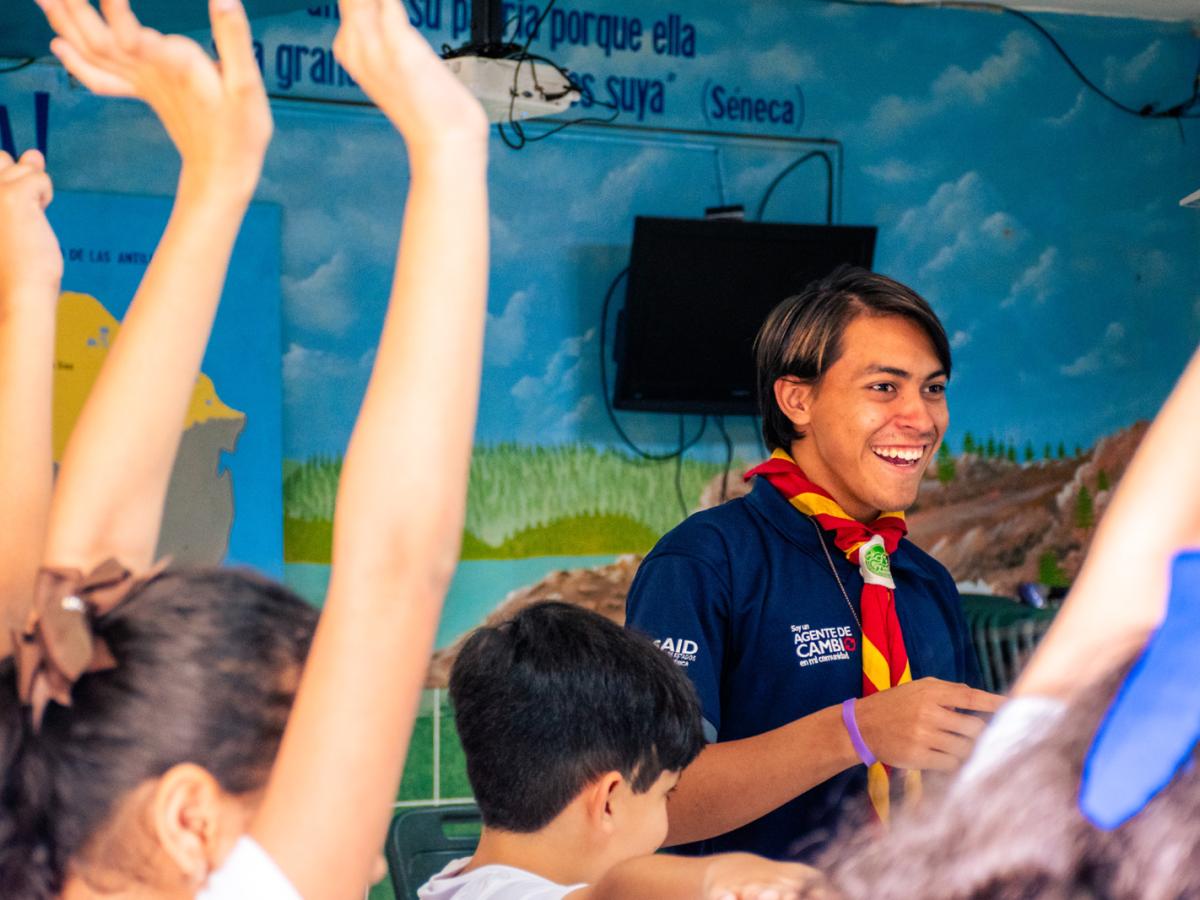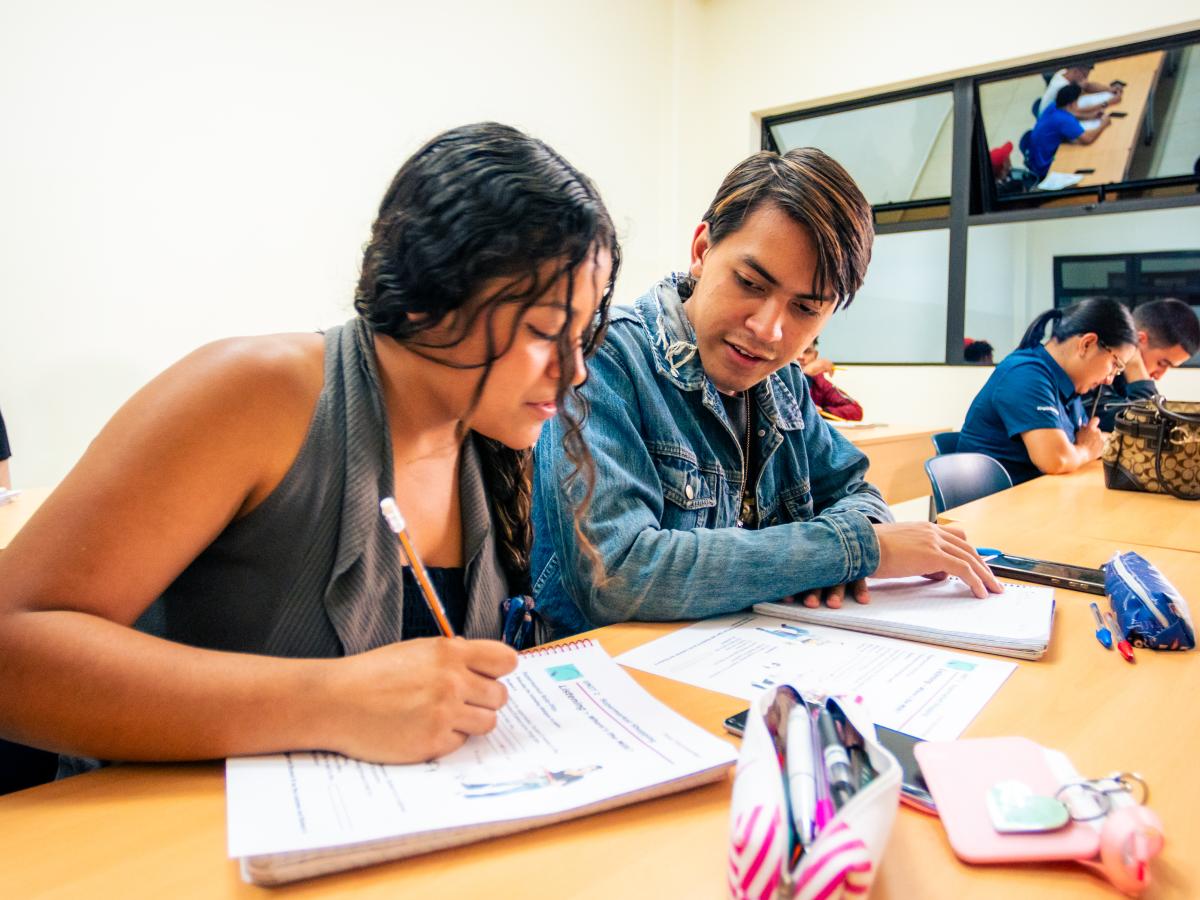Central American Service Corps Helps Garifuna Youth Envision a Future in Honduras
Many Honduran youth fail to envision a future in their country after graduating from high school. Lacking marketable job skills, work experience, or mentoring, young people often choose to migrate without documents in search of better opportunities. For youth within the Garifuna community, discrimination and economic necessity are also key factors in young people’s decision to leave.
In the Corozal community of La Ceiba, 19-year-old Jezia explained that she has “friends and family who have migrated in search of job opportunities.” She explained, “Young people don’t have the preparation or technical skill training to create a business.” Without a clear pathway to employment or a strong sense of belonging, she said youth “end up losing hope.”
To help disadvantaged youth transition more smoothly from high school to higher education, the workforce, or both, USAID’s Creando Mi Futuro Aquí project is implementing the Central American Service Corp (CASC) High School Pathway to Employment Program. The six-month program helps youth create a career plan, equips them with employability skills, provides a modest stipend, and mentors them through the job search process. CASC youth also conduct community service projects to strengthen their sense of belonging and resilience.
In February 2024 as part of her community service project, Jezia held a jewelry-making workshop with a group of girls from her community to teach them how to create and sell their own products to generate income.
After conducting her project, Jezia said, “I feel that I made a great impact on the girls in the community by seeing the joy of each one of them with a big smile as they participated in the workshop.” The CASC program has renewed Jezia’s sense of belonging and her outlook on the future.
“I don't think about migrating… I think there are job opportunities within our country,” Jezia says.
She plans to continue leading volunteering activities in her community. “An agent of change can start by doing something small,” she said. “Giving that little grain of sand we can create smiles and a great impact on people’s lives.” By helping vulnerable Honduran youth prepare for the workforce and to be leaders in their communities, USAID is ensuring that young people like Jezia can build a promising future in their own country.
Alejandro's Journey

CASC Honduras participant, Alejandro, leads a group activity with students.
Honduran youth face numerous day-to-day challenges, such as high unemployment and increasing violence, which exacerbates poverty and drives them to consider leaving home.
Alejandro, 18, from the capital city of Tegucigalpa, once considered leaving Honduras to make the perilous journey north. During high school, many of his classmates and friends dropped out of school to enter the workforce, join gangs, or leave the country in search of better opportunities. While many people described Alejandro as positive, dedicated, and a natural leader, he often felt discouraged and uncertain about how to achieve success in Honduras.
During his senior year in high school, Alejandro's life took a new turn when USAID’s Creando Mi Futuro Aquí High School Pathway to Employment program visited his school. The program’s offer of job skills training, a modest stipend, and career mentoring caught his attention. Alejandro applied right away!
Under CASC, the Creando Mi Futuro Aquí project empowers Honduran youth to break the cycle of poverty and violence and discover pathways to higher education, the workforce, or both. The program includes workforce development training as well as guidance to design and implement service projects that address local challenges and provide valuable work experience.
For his service project, Alejandro volunteered with Pilar Salinas School for the Visually-Impaired, a non-profit organization that provides free education to children and adolescents with visual impairments. Alejandro mobilized fellow Scouts to volunteer to read books and play games with the children, too. The troop plans to visit regularly.
“Although it was just a grain, I know I helped,” he said. The experience taught him that young people can be leaders in their community, helping to unite others to tackle problems.

Alejandro, a CASC participant in Honduras, is pursuing a college degree thanks to the program.
In addition to the transformative service opportunity, Alejandro took advantage of the program's career counseling, resume writing, and interview preparation services. He used the stipend to enroll in university, where he is pursuing a degree in psychology.
In early 2024, Alejandro completed the CASC program, which renewed his sense of belonging and gave him a pathway to stay and succeed at home in Honduras. He believes that through CASC, “volunteers can make great changes, not only in their communities, but in the entire country.” Alejandro concluded, “It is difficult, but not impossible… We are the future of the country.”
This story was adapted by Chelsea Milko McAllister and written by Andrew Duryea and Craig Davis. Photos by Eduardo Cálix.
